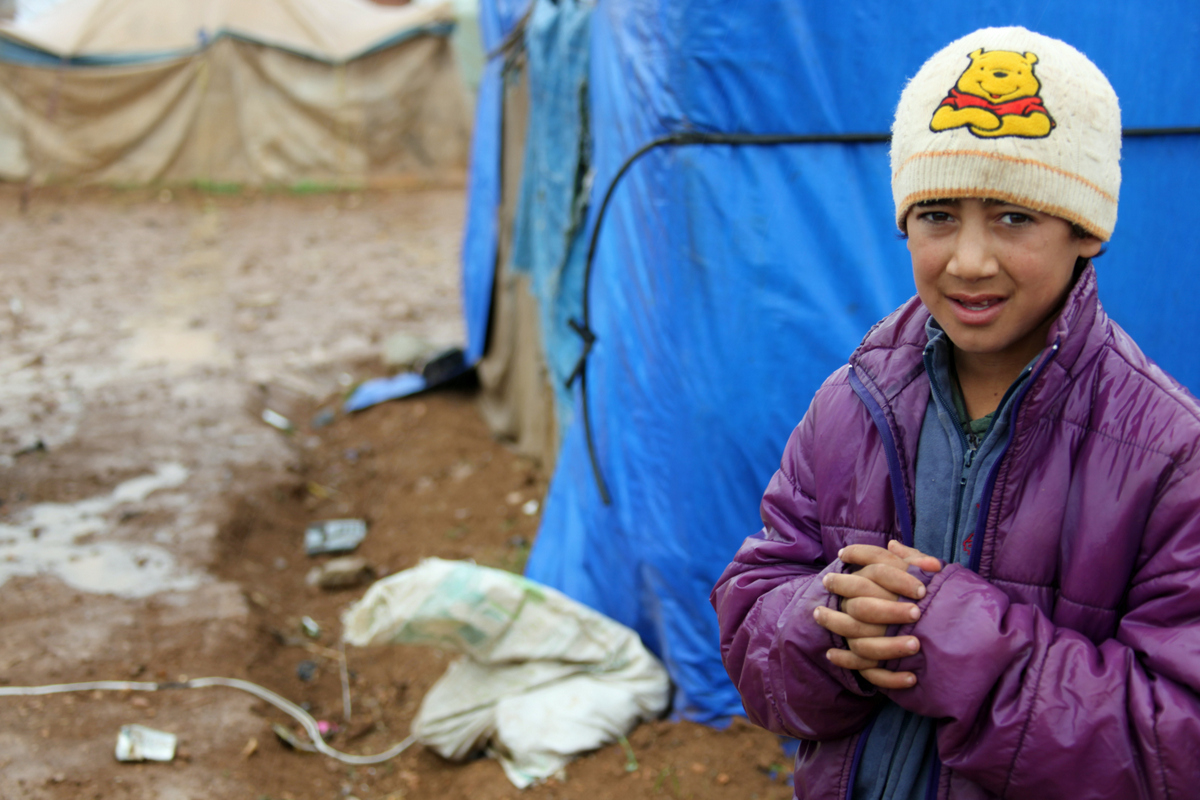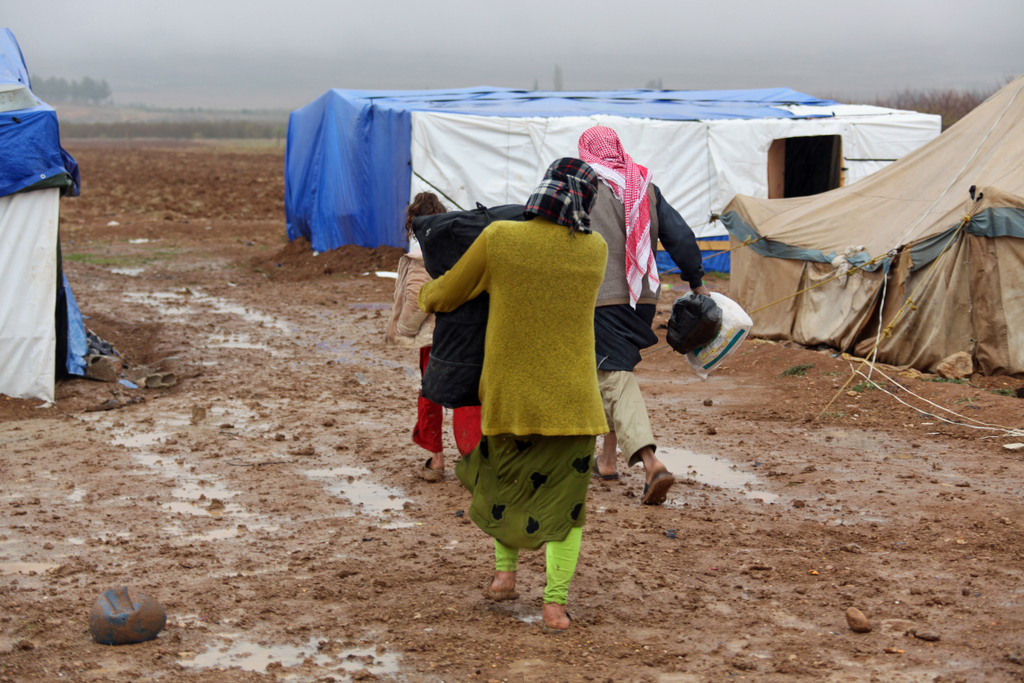Displaced Syrians and refugees plunged into despair as winter hits the Middle East

Tents blown away, flooded buildings, snow-covered settlements, muddy swamps: harsh winter conditions have come without warning this year in the Middle East and plunged displaced Syrians and refugees into severe hardship.
Syria is the worst hit with its 6.5 million displaced people. A lot of them live in makeshift camps or tents which are in no way appropriate for winter conditions and have no basic heating systems. MdM teams have noticed an increase in common cold, pharyngitis, laryngitis and flu in the camps of the North-Idlib region, near the Turkish border. “These infections develop because of the cold and the overcrowded camps“, explained Dr. Hamza, medical supervisor for MdM. Common illnesses are not cured because of the appropriate quantities of medicines cannot be sent. “While more and more people are getting sick, fighting in the area and bad weather conditions are preventing us to supply our healthcare centres as we should”, said Rolland Gueneau, general coordinator for MdM in Syria.
In Zaatari camp, Jordan, more than 3,000 Syrian families were housed in tents mid-October while the majority of the camp’s inhabitants now live in caravans. Last week, strong winds blew dozens of tents away and heavy rain flooded others. Zakaria, a watchman at one of MdM healthcare centres in Zaatari and inhabitant described the situation. “People who were living in these tents sought shelter in the caravans of relatives, which are now overcrowded”, he said. “We feel humiliated because, in this camp, we are particularly exposed to wind and rain. Our daily life can be disrupted simply by bad weather”, he added.
In Lebanon, winter storm Alexa and temperatures’ drop have affected hundreds of thousands of Syrian refugees who lack appropriate accommodation and are particularly vulnerable to cold. “The impact on the ground is considerable as the country’s infrastructures are not in place to cope with the situation. And unfortunately, some heating systems are only made available to the refugees at the last moment while aid distribution is complicated and slowed by the poor weather forecast. Roads are cut off at the mountain passes and vehicles can only drive through at set times during the day,” analysed Baptiste Hanquart, MdM General Coordinator in Lebanon.
Despite the obstacles and gaps that remain, the health situation is under control, in Jordan as well as in Lebanon. MdM teams are closely monitoring the healthcare centres medicines’ consumption, to prevent any shortage and anticipate needs. MdM, however, remains deeply concerned by the deteriorating health status of vulnerable populations in Syria.

In the Bekaa Valley, heavy rain and snow turn Syrian refugees’ settlements into muddy swamps – December 2013 © Sebastien Chatelier